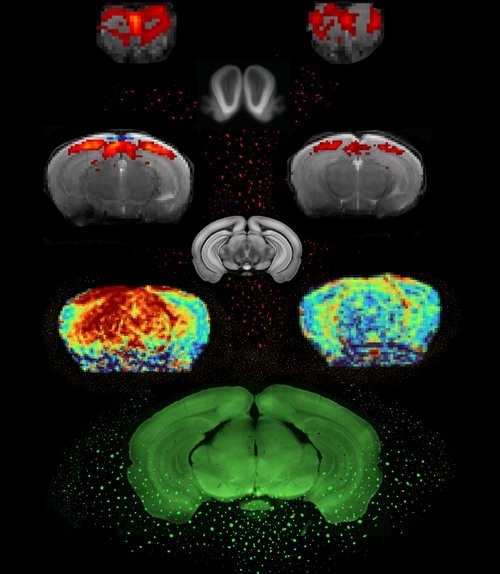Improving Radiotherapy Workflows Using Standard Industry Interfaces
|
By MedImaging International staff writers Posted on 23 Oct 2008 |
Varian Medical Systems, Inc. (Palo Alto, CA, USA), a leading provider of radiation therapy systems for oncology care, and Siemens Healthcare (Erlangen, Germany), a world-leading supplier of healthcare solutions, announced that the two companies will work together using industry standard interfaces to connect Varian's Aria oncology information system and Siemens' syngo suite for oncology.
"The Aria system has always promoted an open architecture based on industry standards like DICOM [Digital Imaging and Communications in Medicine],” said Corey Zankowski, senior director of product management, DICOM standards that are now used in most hospitals worldwide. "By collaborating to connect our systems using DICOM, Varian and Siemens can better support customers that use technology from both companies, and these customers can take advantage of more integrated workflows and enhanced interoperability with these solutions to adopt modern, advanced clinical methods quickly and efficiently.”
Furthermore, by adopting industry standards for integration, Varian and Siemens customers are able to avoid investing in unnecessary interfaces that require costly additional maintenance and modifications as technologies evolve. Both companies are committed to the goals of the IHE-RO effort (Integrating the Healthcare Enterprise-Radiation Oncology), initiated by the Healthcare Information and Management Systems Society (HIMSS) and the Radiological Society of America (RSNA) to standardize the communication between oncology information systems and treatment delivery systems.
While the two companies work toward implementing a DICOM worklist-based communication protocol, Siemens will use Varian's four-dimensional (4D) Integrated Treatment Console interface to connect their own radiotherapy treatment machines, which include the Artiste system, and Oncor and Primus linear accelerators with Aria.
Dow Wilson, president of Varian Medical Systems' Oncology business remarked, "We're pleased about the opportunity to work with Siemens on standardized solutions for integrating information technology in order to promote an open environment that helps to improve the cost efficiency and affordability of cancer care. Ensuring interoperability with our market leading Aria Oncology Information System and Siemens syngo Suite for Oncology, and improving workflow between our systems, will be a great benefit to the oncology community.”
"We need to encourage our industry to move towards the DICOM standard and ensure that DICOM is utilized to its fullest potential,” added Holger Schmidt, CEO, Oncology Care Systems, Siemens Healthcare, "We are happy that both Siemens and Varian are fully committed to implementing the DICOM standard following the IHE-RO workflows. Siemens is very excited to work with Varian on the interoperability between Aria and Siemens' syngo Suite for Oncology and help clinics maximize cost efficiencies.”
Varian Medical Systems is a manufacturer of medical devices and software for treating cancer and other medical conditions with radiotherapy, radiosurgery, proton therapy, and brachytherapy. The company supplies informatics software for managing comprehensive cancer clinics, radiotherapy centers, and medical oncology practices. Varian is a major supplier of tubes and digital detectors for X-ray imaging in medical, scientific, and industrial applications and also supplies X-ray imaging products for cargo screening and industrial inspection.
The Siemens Healthcare Sector is one of the world's largest suppliers to the healthcare industry. The company is a renowned medical systems provider with core competence and innovative strength in diagnostic and therapeutic technologies as well as in knowledge engineering, including information technology and system integration. With its laboratory diagnostics acquisitions, Siemens Healthcare is an integrated healthcare company, bringing together imaging and lab diagnostics, therapy, and healthcare information technology solutions, supplemented by consulting and support services.
Related Links:
Varian Medical Systems
Siemens Healthcare
"The Aria system has always promoted an open architecture based on industry standards like DICOM [Digital Imaging and Communications in Medicine],” said Corey Zankowski, senior director of product management, DICOM standards that are now used in most hospitals worldwide. "By collaborating to connect our systems using DICOM, Varian and Siemens can better support customers that use technology from both companies, and these customers can take advantage of more integrated workflows and enhanced interoperability with these solutions to adopt modern, advanced clinical methods quickly and efficiently.”
Furthermore, by adopting industry standards for integration, Varian and Siemens customers are able to avoid investing in unnecessary interfaces that require costly additional maintenance and modifications as technologies evolve. Both companies are committed to the goals of the IHE-RO effort (Integrating the Healthcare Enterprise-Radiation Oncology), initiated by the Healthcare Information and Management Systems Society (HIMSS) and the Radiological Society of America (RSNA) to standardize the communication between oncology information systems and treatment delivery systems.
While the two companies work toward implementing a DICOM worklist-based communication protocol, Siemens will use Varian's four-dimensional (4D) Integrated Treatment Console interface to connect their own radiotherapy treatment machines, which include the Artiste system, and Oncor and Primus linear accelerators with Aria.
Dow Wilson, president of Varian Medical Systems' Oncology business remarked, "We're pleased about the opportunity to work with Siemens on standardized solutions for integrating information technology in order to promote an open environment that helps to improve the cost efficiency and affordability of cancer care. Ensuring interoperability with our market leading Aria Oncology Information System and Siemens syngo Suite for Oncology, and improving workflow between our systems, will be a great benefit to the oncology community.”
"We need to encourage our industry to move towards the DICOM standard and ensure that DICOM is utilized to its fullest potential,” added Holger Schmidt, CEO, Oncology Care Systems, Siemens Healthcare, "We are happy that both Siemens and Varian are fully committed to implementing the DICOM standard following the IHE-RO workflows. Siemens is very excited to work with Varian on the interoperability between Aria and Siemens' syngo Suite for Oncology and help clinics maximize cost efficiencies.”
Varian Medical Systems is a manufacturer of medical devices and software for treating cancer and other medical conditions with radiotherapy, radiosurgery, proton therapy, and brachytherapy. The company supplies informatics software for managing comprehensive cancer clinics, radiotherapy centers, and medical oncology practices. Varian is a major supplier of tubes and digital detectors for X-ray imaging in medical, scientific, and industrial applications and also supplies X-ray imaging products for cargo screening and industrial inspection.
The Siemens Healthcare Sector is one of the world's largest suppliers to the healthcare industry. The company is a renowned medical systems provider with core competence and innovative strength in diagnostic and therapeutic technologies as well as in knowledge engineering, including information technology and system integration. With its laboratory diagnostics acquisitions, Siemens Healthcare is an integrated healthcare company, bringing together imaging and lab diagnostics, therapy, and healthcare information technology solutions, supplemented by consulting and support services.
Related Links:
Varian Medical Systems
Siemens Healthcare
Latest Industry News News
- GE HealthCare and NVIDIA Collaboration to Reimagine Diagnostic Imaging
- Patient-Specific 3D-Printed Phantoms Transform CT Imaging
- Siemens and Sectra Collaborate on Enhancing Radiology Workflows
- Bracco Diagnostics and ColoWatch Partner to Expand Availability CRC Screening Tests Using Virtual Colonoscopy
- Mindray Partners with TeleRay to Streamline Ultrasound Delivery
- Philips and Medtronic Partner on Stroke Care
- Siemens and Medtronic Enter into Global Partnership for Advancing Spine Care Imaging Technologies
- RSNA 2024 Technical Exhibits to Showcase Latest Advances in Radiology
- Bracco Collaborates with Arrayus on Microbubble-Assisted Focused Ultrasound Therapy for Pancreatic Cancer
- Innovative Collaboration to Enhance Ischemic Stroke Detection and Elevate Standards in Diagnostic Imaging
- RSNA 2024 Registration Opens
- Microsoft collaborates with Leading Academic Medical Systems to Advance AI in Medical Imaging
- GE HealthCare Acquires Intelligent Ultrasound Group’s Clinical Artificial Intelligence Business
- Bayer and Rad AI Collaborate on Expanding Use of Cutting Edge AI Radiology Operational Solutions
- Polish Med-Tech Company BrainScan to Expand Extensively into Foreign Markets
- Hologic Acquires UK-Based Breast Surgical Guidance Company Endomagnetics Ltd.
Channels
Radiography
view channel
Machine Learning Algorithm Identifies Cardiovascular Risk from Routine Bone Density Scans
A new study published in the Journal of Bone and Mineral Research reveals that an automated machine learning program can predict the risk of cardiovascular events and falls or fractures by analyzing bone... Read more
AI Improves Early Detection of Interval Breast Cancers
Interval breast cancers, which occur between routine screenings, are easier to treat when detected earlier. Early detection can reduce the need for aggressive treatments and improve the chances of better outcomes.... Read more
World's Largest Class Single Crystal Diamond Radiation Detector Opens New Possibilities for Diagnostic Imaging
Diamonds possess ideal physical properties for radiation detection, such as exceptional thermal and chemical stability along with a quick response time. Made of carbon with an atomic number of six, diamonds... Read moreMRI
view channel
Simple Brain Scan Diagnoses Parkinson's Disease Years Before It Becomes Untreatable
Parkinson's disease (PD) remains a challenging condition to treat, with no known cure. Though therapies have improved over time, and ongoing research focuses on methods to slow or alter the disease’s progression,... Read more
Cutting-Edge MRI Technology to Revolutionize Diagnosis of Common Heart Problem
Aortic stenosis is a common and potentially life-threatening heart condition. It occurs when the aortic valve, which regulates blood flow from the heart to the rest of the body, becomes stiff and narrow.... Read moreUltrasound
view channel
New Incision-Free Technique Halts Growth of Debilitating Brain Lesions
Cerebral cavernous malformations (CCMs), also known as cavernomas, are abnormal clusters of blood vessels that can grow in the brain, spinal cord, or other parts of the body. While most cases remain asymptomatic,... Read more.jpeg)
AI-Powered Lung Ultrasound Outperforms Human Experts in Tuberculosis Diagnosis
Despite global declines in tuberculosis (TB) rates in previous years, the incidence of TB rose by 4.6% from 2020 to 2023. Early screening and rapid diagnosis are essential elements of the World Health... Read moreNuclear Medicine
view channel
New Imaging Approach Could Reduce Need for Biopsies to Monitor Prostate Cancer
Prostate cancer is the second leading cause of cancer-related death among men in the United States. However, the majority of older men diagnosed with prostate cancer have slow-growing, low-risk forms of... Read more
Novel Radiolabeled Antibody Improves Diagnosis and Treatment of Solid Tumors
Interleukin-13 receptor α-2 (IL13Rα2) is a cell surface receptor commonly found in solid tumors such as glioblastoma, melanoma, and breast cancer. It is minimally expressed in normal tissues, making it... Read moreGeneral/Advanced Imaging
view channel
First-Of-Its-Kind Wearable Device Offers Revolutionary Alternative to CT Scans
Currently, patients with conditions such as heart failure, pneumonia, or respiratory distress often require multiple imaging procedures that are intermittent, disruptive, and involve high levels of radiation.... Read more
AI-Based CT Scan Analysis Predicts Early-Stage Kidney Damage Due to Cancer Treatments
Radioligand therapy, a form of targeted nuclear medicine, has recently gained attention for its potential in treating specific types of tumors. However, one of the potential side effects of this therapy... Read moreImaging IT
view channel
New Google Cloud Medical Imaging Suite Makes Imaging Healthcare Data More Accessible
Medical imaging is a critical tool used to diagnose patients, and there are billions of medical images scanned globally each year. Imaging data accounts for about 90% of all healthcare data1 and, until... Read more





















